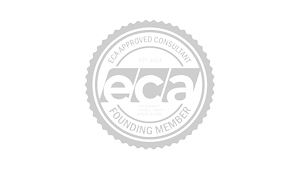In navigating the complexities of today’s energy market, businesses are on a quest for not just any energy solution, but one that promises both sustainability and affordability. The escalating costs of conventional energy sources and the undeniable impact of climate change are steering companies towards innovative energy solutions. You’re likely looking for strategies that not only reduce costs but also align with global sustainability goals, striking a balance that seems increasingly challenging to achieve.
With a deep understanding of the energy sector’s nuances, this discussion delves into the multifaceted world of corporate energy sourcing. It addresses your key concerns – from the unpredictability of energy prices to the pressing need for eco-friendly operations. By exploring the advantages of renewable energy adoption and the significance of energy efficiency, we aim to equip you with the insights needed to make informed decisions.
As we unfold the layers, you’ll find that the journey towards affordable and sustainable corporate energy sourcing is not only possible but within reach, inviting you to explore the solutions that await.
Key Takeaways
- Adopt data-driven, analytical, and strategic energy procurement approaches
- Leverage renewable energy incentives to reduce costs
- Analyse market trends and energy price fluctuations
- Maximise utilisation of renewable energy sources
Energy Procurement Strategies
In order to implement cost-effective and environmentally friendly energy sourcing strategies, companies must adopt data-driven, analytical, and strategic energy procurement approaches. Energy procurement is the process of acquiring energy from various sources to meet the organisation’s energy needs. However, companies often face significant challenges in this process, such as volatile energy prices, complex market dynamics, and a lack of transparency in energy contracts.
To address these challenges, companies can leverage data-driven analytics to optimise their energy procurement decisions.
One key aspect of data-driven energy procurement is the identification and utilisation of renewable energy incentives. Governments and regulatory bodies around the world have introduced various incentives to promote the adoption of renewable energy sources. These incentives include tax credits, grants, and subsidies, which can significantly reduce the cost of procuring renewable energy.
By carefully analysing these incentives and incorporating them into their procurement strategies, companies can source renewable energy more affordably and achieve their sustainability goals.
Additionally, data-driven energy procurement enables companies to assess market trends, identify energy price fluctuations, and make informed decisions about the timing and duration of energy procurement contracts. By leveraging advanced analytics and predictive models, companies can optimise their energy procurement strategies, reduce costs, and maximise the utilisation of renewable energy sources.
Factors Affecting Energy Sourcing Costs
When considering factors that affect energy sourcing costs, it is important to take into account energy market fluctuations. These fluctuations can significantly impact the price of energy, making it crucial for companies to stay informed and adapt their sourcing strategies accordingly.
Additionally, the availability and cost of renewable energy options play a significant role in determining sourcing costs. By exploring renewable energy options, companies can not only contribute to fighting climate change but also potentially reduce their sourcing expenses.
Lastly, implementing energy efficiency measures can help companies optimise their energy usage and lower overall sourcing costs. By strategically managing these factors, companies can work towards affordable and sustainable energy sourcing.
Energy Market Fluctuations
Geopolitical events, weather patterns, supply and demand dynamics, and regulatory changes are among the influential factors that drive energy market fluctuations, ultimately impacting the costs of corporate energy sourcing. Understanding the impact of energy market volatility is crucial for companies seeking strategies to mitigate energy sourcing costs.
Here are four key points to consider:
- Commodity prices: Fluctuations in oil and gas markets can have a significant impact on energy sourcing costs. Monitoring and analysing these prices can help companies make informed decisions.
- Regulatory changes: Policies and regulations can greatly influence energy costs. Staying up-to-date with changes in regulations can help companies anticipate potential cost impacts and adjust their sourcing strategies accordingly.
- Renewable energy advancements: Technological innovations in renewable energy sources can offer more affordable alternatives for corporate energy sourcing. Investing in renewable energy solutions can help reduce costs and enhance sustainability.
- Market competition: The presence of alternative energy sources and increased market competition can drive down energy costs. Exploring different sourcing options and negotiating contracts with multiple suppliers can help companies secure more favourable pricing.
Renewable Energy Options
With the understanding that energy market fluctuations impact corporate energy sourcing costs, a critical aspect to consider is the availability and utilisation of renewable energy options. Renewable energy technologies offer a promising solution for corporations seeking affordable and sustainable energy sourcing. These technologies, such as solar, wind, and hydropower, provide a clean and renewable source of energy, reducing carbon emissions and promoting environmental sustainability. In addition to their environmental benefits, renewable energy options can also be financially advantageous for corporations. Governments often provide subsidies and incentives to encourage the adoption of renewable energy, making it a cost-effective choice for businesses. By investing in renewable energy, corporations can not only reduce their energy costs but also enhance their brand image as responsible and innovative leaders in sustainability.
| Renewable Energy Technologies | Benefits |
|---|---|
| Solar | Clean and renewable energy source |
| Wind | Reduces carbon emissions |
| Hydropower | Promotes environmental sustainability |
Energy Efficiency Measures
Energy efficiency measures play a pivotal role in minimising energy sourcing costs for businesses by optimising resource utilisation and reducing wastage. Implementing energy-saving technologies and practices can lead to significant cost savings in the long run.
Here are four key reasons why energy efficiency measures are crucial for businesses:
- Cost reduction: By reducing energy consumption, businesses can lower their energy bills and operating costs, resulting in improved financial performance.
- Environmental sustainability: Energy efficiency measures help reduce greenhouse gas emissions and contribute to a more sustainable and eco-friendly business model.
- Competitive advantage: Adopting energy-efficient technologies and practices can differentiate businesses from their competitors and attract environmentally conscious customers.
- Regulatory compliance: Many countries and regions have implemented energy efficiency standards and regulations. By complying with these requirements, businesses can avoid penalties and maintain their reputation.
Investing in energy-efficient technologies and practices is not only financially beneficial but also a strategic move towards a more sustainable and innovative future.
Benefits of Renewable Energy Sourcing
The adoption of renewable energy sourcing offers corporations numerous strategic advantages and tangible benefits.
One of the key benefits of renewable energy is its positive impact on the environment. By shifting to renewable energy technologies, corporations can reduce their carbon footprint and contribute to mitigating climate change. This not only demonstrates their commitment to sustainability but also helps in achieving the United Nations Sustainable Development Goal 7 of ensuring access to affordable, reliable, sustainable, and modern energy for all.
In addition to the environmental benefits, renewable energy sourcing can also have a direct impact on a corporation’s bottom line. The cost of renewable energy technologies, such as solar and wind, has significantly decreased in recent years, making them more competitive with traditional energy sources. This means that corporations can potentially save on their energy expenses by investing in renewable energy sources, leading to long-term cost savings and increased profitability.
Moreover, renewable energy sourcing can enhance a corporation’s reputation and brand image. In today’s world, consumers are increasingly conscious of the environmental impact of the products and services they consume. By prioritising renewable energy, corporations can attract environmentally conscious customers, differentiate themselves from competitors, and build a positive brand image.
Key Considerations for Affordable Energy Sourcing
Considerations for affordable energy sourcing include analysing the cost-effectiveness and environmental impact of renewable energy sources, promoting energy efficiency through telecommuting and clean energy technology, and exploring potential savings and emissions reductions from prioritising electric vehicles and renewable energy strategies.
To ensure affordable energy sourcing, companies should take into account the following key considerations:
- Location and availability of renewable energy sources:
Assess the feasibility and accessibility of renewable energy sources in the vicinity. This will help determine the cost-effectiveness and potential benefits of sourcing energy from these sustainable sources.
- Renewable energy subsidies:
Research and take advantage of any available subsidies or incentives for renewable energy. These can significantly reduce the upfront costs and make renewable energy sourcing more financially viable.
- Energy efficiency through telecommuting:
Encourage telecommuting and flexible work arrangements to decrease net energy demand. By reducing the need for employees to commute to the office, companies can decrease their overall energy consumption and costs.
- Clean energy technology investment:
Invest in research and development of clean energy technologies. By supporting innovation in this field, companies can contribute to the development of cost-effective and efficient renewable energy solutions.
Case Studies: Successful Energy Sourcing Initiatives
In order to explore successful energy sourcing initiatives, it is important to analyse case studies that demonstrate cost-effective energy sourcing and efficient energy procurement strategies.
By examining real-world examples, companies can gain insights into the strategies and approaches that have proven successful in achieving affordable and sustainable energy sourcing.
Through a data-driven and analytical approach, these case studies can provide valuable information and guidance for companies looking to optimise their energy procurement processes and reduce costs while meeting their sustainability goals.
Cost-Effective Energy Sourcing
One effective approach to cost-effective energy sourcing is to explore successful case studies of energy sourcing initiatives. By analysing these case studies, companies can identify strategies and practices that have proven to be cost-effective in sourcing renewable energy.
Here are four key findings from successful energy sourcing initiatives:
- Location-specific solutions: Investigating cost-effective and environmentally friendly energy sources for specific locations can help companies optimise their energy sourcing strategies.
- Commitment to clean energy: Companies that commit to sourcing all of their energy from clean sources can benefit from long-term cost savings and reduced environmental impact.
- Telecommuting for energy reduction: Encouraging telecommuting can significantly reduce net energy demand, resulting in cost savings and a smaller carbon footprint.
- Investment in research and development: Increasing investment in renewable energy research and development can lead to innovative solutions that are both cost-effective and sustainable.
Efficient Energy Procurement
Efficient energy procurement is a critical factor in successful energy sourcing initiatives. Case studies have highlighted the importance of cost-effective and environmentally friendly energy sources, telecommuting practices, and investment in renewable energy research.
Businesses face various energy procurement challenges. These include fluctuating energy prices, limited access to sustainable energy solutions, and the need to reduce carbon emissions. To address these challenges, companies are adopting innovative strategies to procure energy efficiently.
One strategy is leveraging renewable energy sources like solar and wind power. By utilising these sources, businesses can reduce their dependence on fossil fuels and lower their carbon footprint.
Another strategy is implementing telecommuting practices to reduce energy consumption in the office. This approach allows employees to work remotely, minimising the need for energy-intensive office spaces and commuting.
Additionally, businesses are investing in research and development of renewable energy technologies. By supporting research efforts, companies can contribute to the development of new and more efficient energy solutions.
These initiatives not only help businesses meet their energy needs in a cost-effective manner but also contribute to a more sustainable and environmentally friendly future.
Implementing Energy Efficiency Measures
How can companies effectively implement energy efficiency measures to optimise their corporate energy sourcing?
Implementing energy efficiency measures is crucial for companies looking to reduce their energy consumption and costs. Here are four key steps to effectively implement energy efficiency measures:
- Conduct an energy audit process: Start by conducting a comprehensive energy audit to identify areas for improvement and prioritise energy efficiency measures. This involves analysing energy usage patterns, identifying energy-intensive processes, and evaluating potential savings opportunities.
- Invest in energy-efficient technologies and equipment: Once the areas for improvement are identified, invest in energy-efficient technologies and equipment. This can include upgrading lighting systems, installing energy management systems, and adopting smart building technologies to reduce energy consumption.
- Implement smart building management systems: Smart building management systems allow for the optimisation of energy usage by monitoring and controlling various energy-consuming devices and systems. These systems can automatically adjust temperature settings, lighting levels, and other factors to minimise wastage and maximise efficiency.
- Provide employee training: Employee training is crucial to ensure the successful implementation of energy efficiency measures. Educate employees on energy-saving practices, the importance of energy efficiency, and how their actions can contribute to overall energy reduction goals.


















